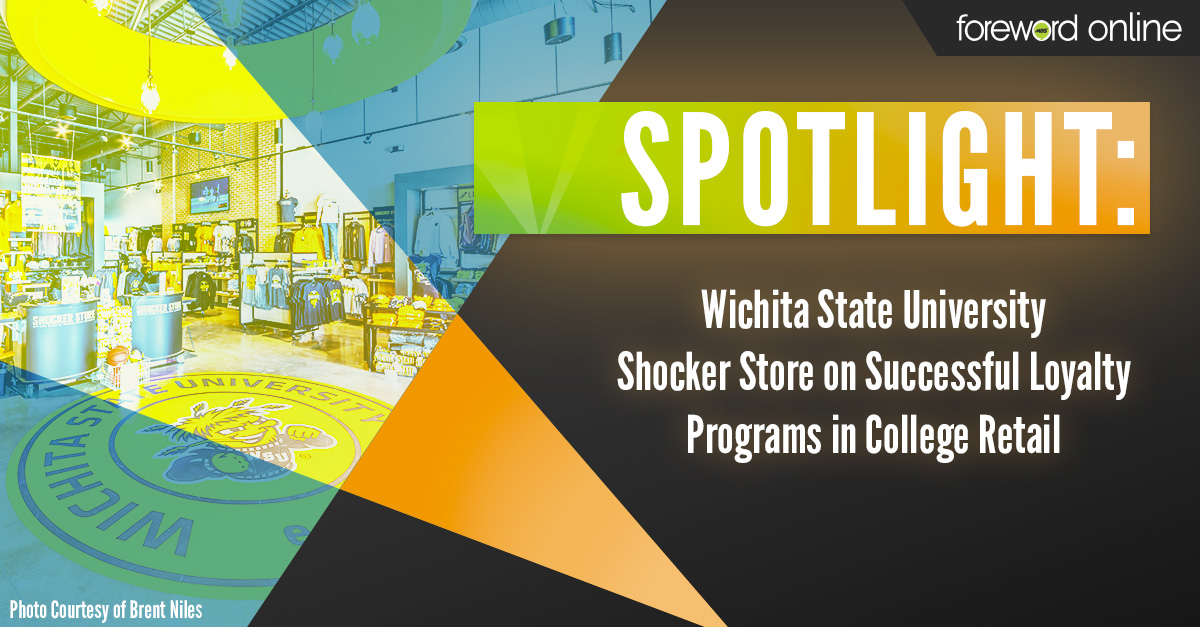The University of California San Diego farmers market is a hit. For 14 years, it has brought fresh, fantastic food options to campus every Tuesday. Co-run by the UCSD Bookstore Sunshine Market and the Center for Student Involvement, the farmers market is going strong and engages students and alumni in campus life. Recently, we sat down with John Poggemeyer, buyer and manager for the UCSD Bookstore Sunshine Market, to discuss the bookstore’s role in the campus farmers market.
Tell me about the farmers market?
Our store manages and co-runs the farmers market with the Center for Student Involvement on campus. We charge all vendors a 9 percent commission to participate and then our two groups split that.
The store does a lot of the day-to-day work, but the Center for Student Involvement helps us staff the market with students. They help us police the area, pick up trash, collect the load sheets for the farmers, write down vendor sales, etc. In the case of certified organic farmers, the farmers have to list exactly what they sold, such as 28 pounds of onions or 14 pounds of turnips or whatever. It can be a lot of paperwork, so it is good to have the help.
The farmers pay to be certified by the San Diego County Department of Health and Agriculture and then the 9 percent commission on their product goes to the farmers market — whether it is hot food, flowers or produce. The students help collect the money and put up and take down the farmers market information booth tent.
What can students get at the market?
It’s mostly local food vendors. Several are UCSD alumni which is great. We have everything from soup to nuts and everything in between. The market has Mexican food, Brazilian food, Hawaiian food, Filipino food, African food, crepes, tamales, barbecue, etc. My personal favorite — I go to it every Tuesday morning to get breakfast — is a place called Benedict's. They serve ten different versions of eggs Benedict with everything from traditional Canadian bacon to salmon and sausage and vegetables. They also make custom made omelets. They have a roasted potato that is to die for. It’s fun.
We have 14 hot food vendors, three certified organic farmers, a flower vendor, a cookie vender that sells wrapped and packaged cookies and brownies, a gluten free pastry vendor, a poke bowl place, pretty much anything you could want. We actually have a new vendor starting next Tuesday. It is run by two alumni, and they make Belgium waffle cones on site. The cones are filled with fresh fruit and whipped cream. In April or May, they will introduce ice cream as well.
How are vendors selected?
When we have openings, which is infrequent, I’m actually the person who personally screens vendors. A lot of the vendors have been here for the entire 14 years of the market. I have been here 10 years. I get between 20-30 phone calls, emails and walk-ins a week saying, “Hi. I want to be in your farmers market. I heard its really good.”
How much time do you spend on the farmers market?
With paperwork, recaps, and monitoring the market, answering phone calls, emails, requests, I would guess about four hours a week. My assistant manager and the student workers actually man the table during the market.











Does the community attend the market or is it mainly students?
It is mostly students, staff and faculty. The public is certainly welcome. I get phone calls, and I let them know they are welcome to come, but parking is hard to find and expensive. Our campus is just nonstop construction, including the trolley tracks. The trolley comes up from the South Bay area of San Diego and it will land here. That has been an ongoing for five years. We have just short of 40,000 students now and the goal is to increase enrollment to 60,000 by 2030. We currently have housing for 18,000 students and they want that to be 30,000 by 2030. So, between roads, dorms, new developments, new restaurants and the trolley track, it is a nonstop gridlock of construction and track delays.
Why is it beneficial to the market to partner with the campus store?
I think it definitely helps that we are a retail store. We have access to change funds, so we can provide vendors with the change they need. They are supposed to come prepared, but most of them just come to us for change. Ten minutes into market, they come in and say they want $100 in ones and $100 in fives which they can’t do at most farmers markets because they are not attached to or involved with a retail store. We also sell bottled water or cups of coffee if customers want to buy them at our informational table.
What problems have you encountered and how did you handle them?
Some of the vendors have been a little sloppy and accidents occasionally happen like grease spills or that kind of thing. Vendors are responsible for keeping their own spot and for the most part they do. In the ten years I have been involved, there have been maybe six to 10 incidents where we actually had to fine a vendor. They are fined if they do damage and we incur costs to clean it up. The first fine is $50, second $100. We also partner with facilities maintenance on campus once or twice a year to clean up the area. We pay them to have a deep cleaning done. They scrub and steam wash the whole farmers market area for us.
What advice would you give other stores interested in starting their own farmers market or getting involved with their school’s existing market?
Just go to a local farmers market and get lay of the land and the feel. Find out what vendors are paying to be a part of the market. For example, another school in our area actually charges 17.5 percent commission, but they provide parking. My farmers market vendors, especially the food vendors, pay for parking on a weekly basis. It’s about $27.
There are also farmers market training seminars. At the seminars, you hear from other farmers market operators. They share tips on how to be successful. It is really a one-and-done type thing. I attended one of those a couple years ago and found it very helpful.






